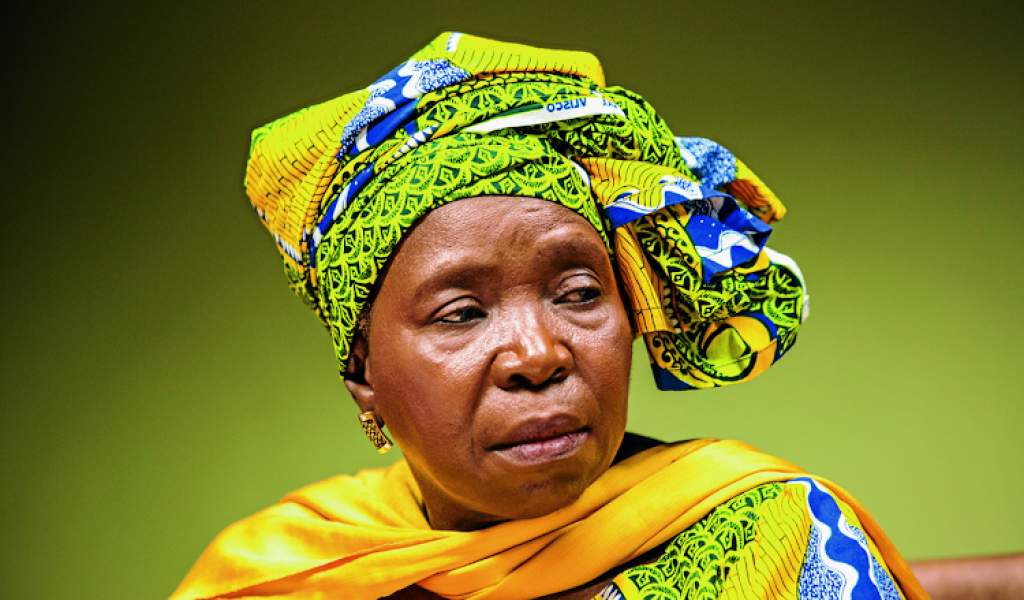Lockdown decision processes will be made public for the first time
For the first time since the declaration of a national state of disaster for Covid-19 in March 2020, the veil of secrecy over the government’s decision-making processes regarding Covid disaster management regulations will be lifted. This is owing to a court victory that Sakeliga achieved this month against Minister of Cooperative Governance and Traditional Affairs, Nkosazana Dlamini-Zuma. The Minister now has no other legal choice but to deliver a variety of records requested by Sakeliga back in 2020.
The court victory concludes a two-year litigation battle, and the records Dlamini-Zuma must now produce relate to decision-making processes followed in 2020 to place the country under lockdown and make the erratic extensions thereof. These lockdowns and other measures did unprecedented harm to economic and social activity.
The public will now be able to see for themselves for what apparent reasons Dlamini-Zuma and her department imposed police state conditions on the public to ensure people stayed in their homes, schools and universities remained closed, churches could not congregate, and businesses remained shut. As information about the damage caused by Covid restrictions emerges over time, Sakeliga now expresses the hope that members of the public will use records produced in our court victory as an impetus and grounding to hold the government to account for harmful decisions of the past and to prevent such egregious abuses of power re-occurring in the future.
In terms of the court order in Sakeliga’s favour, Dlamini-Zuma must, by 9 December,* deliver an array of records of decision-making on Covid lockdown decisions. This includes all records, reasons, reports, findings, deliberations, communications, memoranda and/or further documentation relied upon by the Minister when she repeatedly exercised far-reaching powers under the Disaster Management Act to keep the country in the grip of erratic lockdown measures.
It is of course possible that Dlamini-Zuma will claim that, in large part, the records to be provided in terms of the court order do not exist. Such a reaction would confirm suspicions that improper and arbitrary decision-making processes were followed in making Covid regulations. Even more so, in that case, it would mean that the government must and can now be called to account for gravely irresponsible actions.
Sakeliga’s legal battle to obtain the government’s records of decision-making on Covid regulations was beset by government’s abuse of court rules and delaying tactics, such as filing irregular notices of complaint and later withdrawing them. Despite the government’s efforts to derail the case and keep it out of court, Sakeliga followed through with the process. Ultimately, the Minister did not bring herself to oppose the main application, and we were able to take default judgment on 9 November.
Sakeliga endeavours to always carry through legal processes we initiate – not least when it comes to historical abuses of power and abuses that may re-occur in future. Sakeliga is still engaged in two other cases that seek to prevent future abuses of power in relation to communicable diseases:
- A court application in the High Court in Pretoria to prevent the Disaster Management Act from being misused in the future to enforce draconian measures through regulation-making. Read more here.
- A court case which already succeeded in June in eliminating mandatory mask wearing, mandatory vaccinations, and Covid travel requirements, and is still ongoing to prevent future attempts at invasive health monitoring. Read more here.
As regards the recently won case against Dlamini-Zuma, Sakeliga will consider proceeding with an application to hold Dlamini-Zuma guilty of contempt of court if she fails to produce the relevant records by 9 December. In what could then become a similar case, a municipal manager in Limpopo who failed to hand over records to Sakeliga in terms of a previous court order, was sentenced to imprisonment last week. The sentence is suspended and will become effective should the records not be delivered to Sakeliga shortly.
*The use of court days, rather than calendar days, means that the Minister effectively has until 21 December 2022 to comply with the order.

